Within the beauty and cosmetics realm, there’s a rising trend among mindful consumers to deeply scrutinize the ethical and moral stances taken by the brands they endorse. Some makeup brands have come under intense scrutiny due to their affiliations with the Israeli occupation in Palestine.
This scrutiny has sparked widespread calls for boycotts and the exploration of alternative choices. Examining these connections and identifying options for socially-conscious consumers sheds light on the convergence of consumerism, geopolitics, and ethical decision-making in the beauty industry.
1. Maybelline
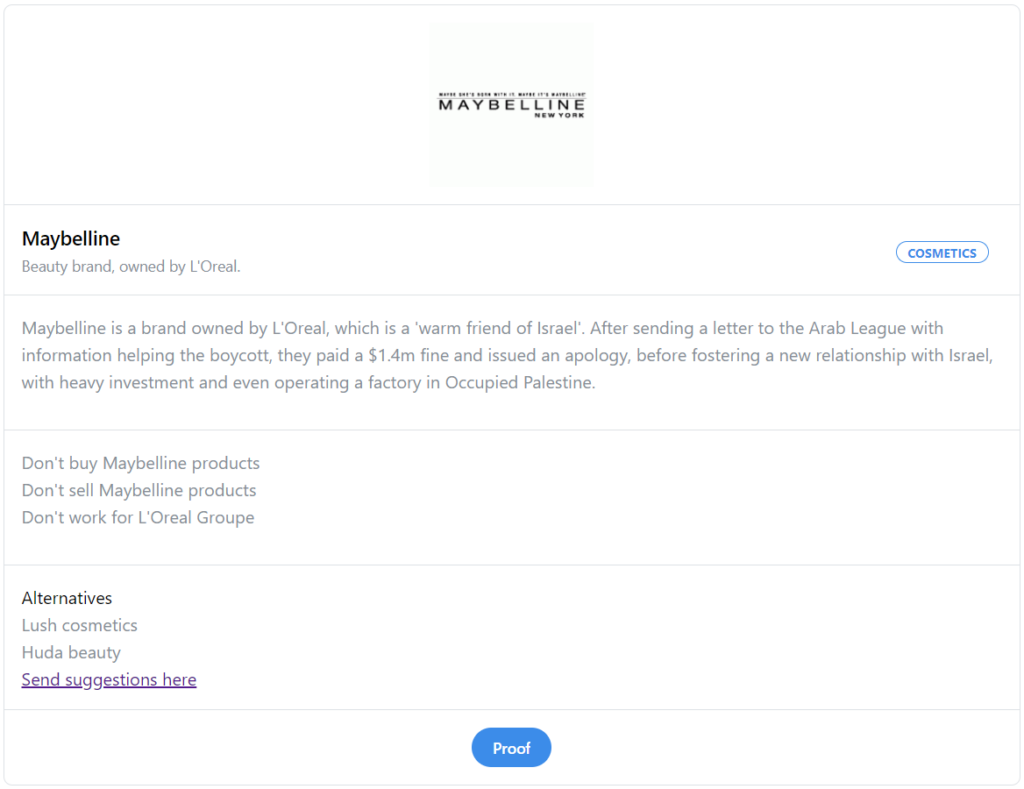
L’Oreal, Maybelline’s parent company, stirred controversy with its ties to Israel, facing repercussions that included a fine and an apology. Despite this, they strengthened their connections, even operating a factory in Occupied Palestine. As a protest against these affiliations, consumers are urged to abstain from purchasing Maybelline products and avoid working for L’Oreal Groupe. Alternatives: Lush Cosmetics, Huda Beauty
2. L’Oreal
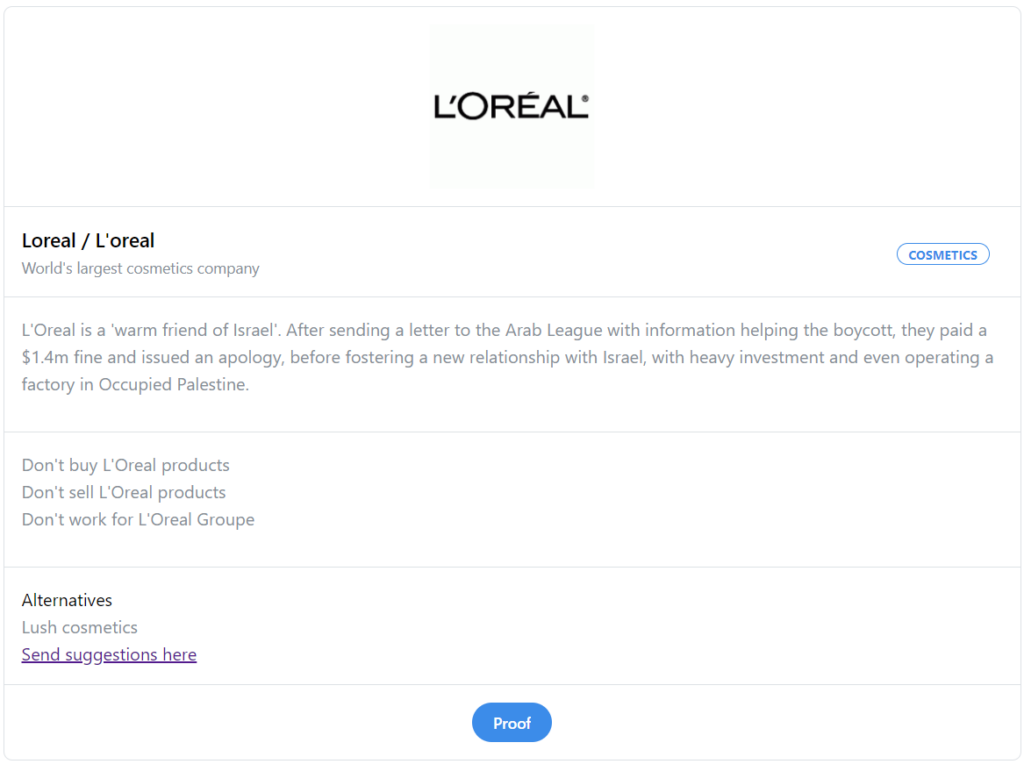
Similar to Maybelline, L’Oreal faced backlash for re-establishing ties with Israel post a fine and apology. Consumers are encouraged to boycott L’Oreal products and distance themselves from L’Oreal Groupe. Alternatives: Lush Cosmetics
3. MAC Cosmetics
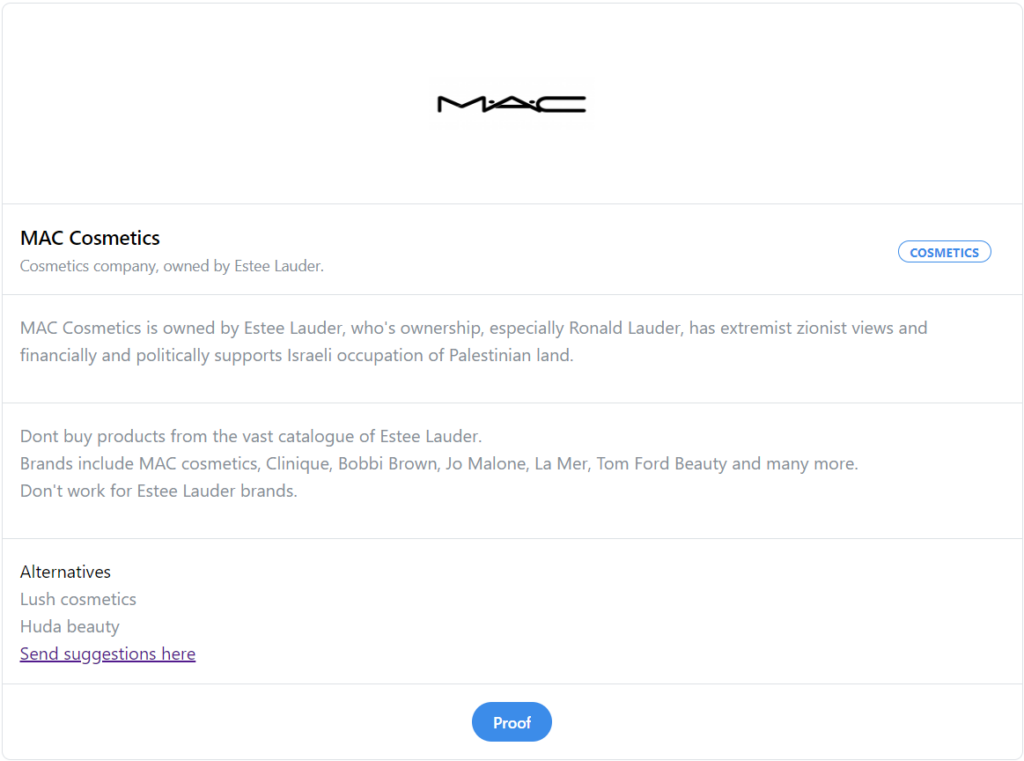
Owned by Estee Lauder, MAC Cosmetics faces scrutiny due to the Lauder family’s support for the Israeli occupation. A broader boycott encompassing Estee Lauder products, including MAC, Clinique, and more, is recommended. Alternatives: Lush Cosmetics, Huda Beauty
Also See: Ralph Lauren Fragrances – Israel Support: What You Need to Know
4. Clinique
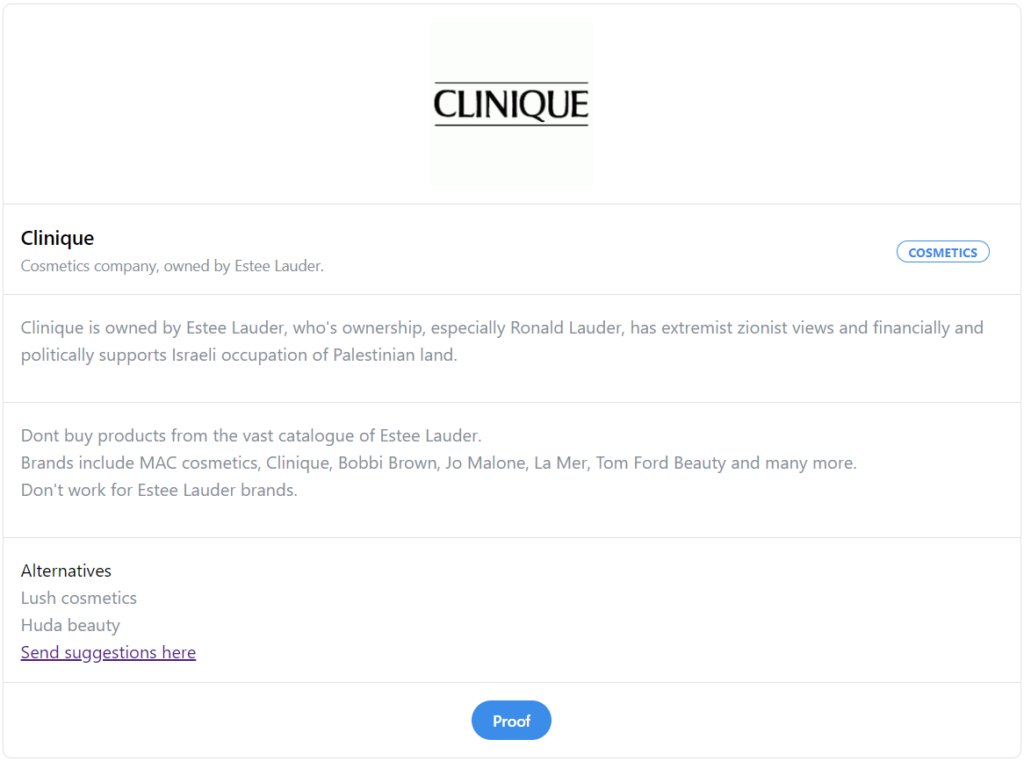
Another Estee Lauder brand, Clinique, falls under the boycott umbrella due to the Lauder family’s ties to Israeli occupation. Alternatives: Lush Cosmetics, Huda Beauty
5. Garnier
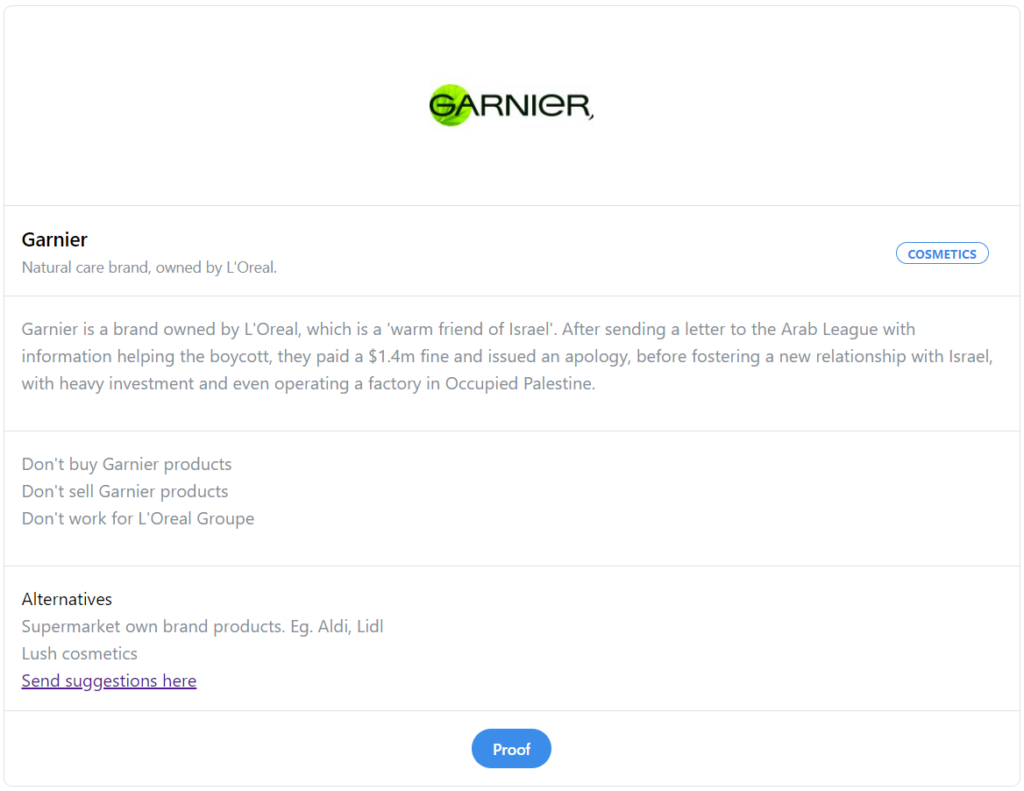
Owned by L’Oreal, Garnier received criticism after reinstating ties with Israel. Consumers are encouraged to refrain from purchasing Garnier products and avoid affiliations with L’Oreal Groupe. Alternatives: Supermarket own-brand products (e.g., Aldi, Lidl), Lush Cosmetics
6. Estee Lauder
The Lauder family, particularly Ronald Lauder, supports the Israeli occupation, prompting a boycott of Estee Lauder products. Alternatives: Lush Cosmetics, Huda Beauty, Unbranded oil-based perfumes, Sunnamusk
7. NYX Professional Makeup
Under L’Oreal’s ownership, NYX faced criticism for renewing ties with Israel. Alternatives: Lush Cosmetics
8. Urban Decay
Similar to other L’Oreal-owned brands, Urban Decay faced controversy related to its association with Israel. Alternatives: Lush Cosmetics, Huda Beauty
9. Benefit Cosmetics
LVMH owner Bernard Arnault invests in Israeli companies, leading to a call for boycotting Benefit Cosmetics. Alternatives: Lush Cosmetics, Huda Beauty
Explore More: The Chanel – Israel Connection Unraveled
10. Too Faced
As part of Estee Lauder, Too Faced is boycotted due to the Lauder family’s support for Israeli occupation. Alternatives: Lush Cosmetics, Huda Beauty
The cosmetics and beauty industry isn’t just about aesthetics; it’s increasingly becoming a stage for ethical standpoints. The movement to boycott makeup brands linked to the Israeli occupation in Palestine reflects a growing trend of conscientious consumerism.
As the makeup industry evolves, the ethical considerations guiding consumer decisions are becoming a pivotal part of the conversation. Alternatives serve as pathways for consumers to align their beauty choices with their ethical values, showcasing the broader impact of individual decisions within the beauty sector.

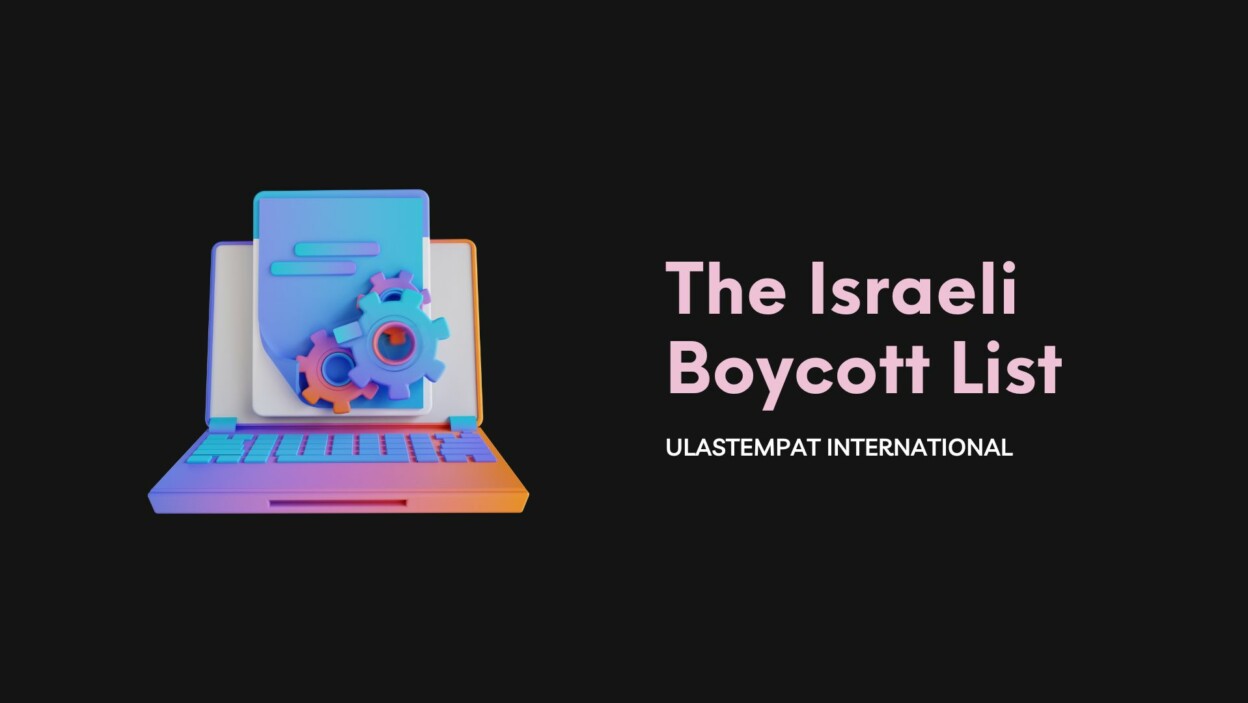
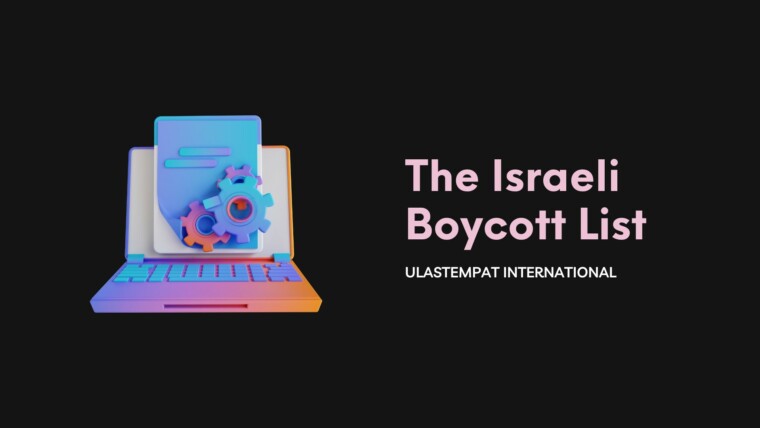
Does Red Bull Support Israel? Decoding the Unraveled Connection
Fast Food Chains Aligned with Israel Support
Chupa Chups’s Support for Israel: Examining the Details
A&W Stand on Israel-Palestine
Does These Firearms Support Israel? Exploring the Unraveled Connection
Does These Tech Brands Support Israel? Decoding the Unraveled Connection
Does These Filmography Support Israel? Understanding the Intricate Ties
Does These Online Business Support Israel? Exploring the Unraveled Connection